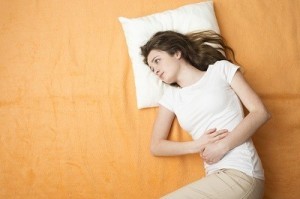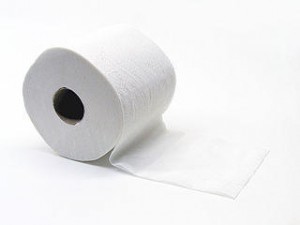Uncontrollable Diarrhea Causes, Diet, Remedies
Diarrhea by its very nature usually means uncontrolled bowel movements to some degree. However, there are instances where diarrhea can be considered severe to the point that even this drastically impaired bowel control appears to be totally lost. It leads to people soiling their clothing and surroundings before they can reach the toilet. It can also refer to diarrhea that does not abate despite medical treatment and cessation of solid foods. In whichever way it is defined, uncontrollable diarrhea is often seen as the worse case scenario for altered bowel habit.
Cannot Hold Back Stool
Fecal incontinence is the term for being unable to restrain the stool for a sufficient duration to have a bowel movement in a toilet. Although fecal incontinence is a broad term that can also apply to normal stool consistency and bowel habit, it is considered to be present in only the most severe forms of diarrhea.
Most people who have diarrhea can restrain themselves for a short while until they reach a toilet. With incontinence there is no such restraining ability. A person cannot hold back the stool. The moment the urging occurs the stool is expelled. Sometimes there is no urging and a person will suddenly find they have soiled themselves.
Diarrhea Not Stopping
Diarrhea like any symptom can be classified as acute or chronic. We all experience acute diarrhea several times in life like when we have food poisoning or the stomach flu (viral gastroenteritis). Acute diarrhea in most of these cases resolves on its own within 48 to 72 hours in most cases although it can persist for 5 to 7 days.
Whether medication is used or not, the acute diarrhea eventually resolves. However, in chronic diarrhea it can persist for weeks, months and in rare cases even for years. The chronic diarrhea may respond to medication temporarily or sometimes medication cannot stop it even for a short period of time.
Causes of Unstoppable Diarrhea
Many of the causes of unstoppable diarrhea have been discussed under both acute diarrhea and chronic diarrhea. Broadly this includes conditions caused by:
- Infections: viral, bacterial and protozoal gastroenteritis, infectious colitis, enterocolitis like cholera, giardiasis, shigellosis and salmonellosis.
- Foods: lactose, fructose, sorbitol and so on which may be a problem in a food intolerance or food malabsorption, wheat or gluten in celiac disease, and food allergies like cow’s milk or soy protein allergy.
- Iatrogenic: certain types of antibiotics leading to antibiotic associated diarrhea (AAD), overuse of laxatives, magnesium-containing antacids, chemotherapy or radiation therapy.
- Deficiency: niacin, folate.
- Autoimmune: inflammatory bowel disease (IBD) – Crohn’s disease or ulcerative colitis.
- Functional: irritable bowel syndrome (IBS) with diarrhea or mixed type.
- Toxicity: vitamin overdose, heavy metals, ingested poisons (plants, mushrooms, animal).
While the diarrhea may be mild in some people, it can be severe and persistent in others. People with weakened immune systems like in HIV infection are particularly prone to severe and persistent forms of diarrhea. With regards to HIV infection, there are some rare infectious causes of diarrhea that may occur. It is extremely rare in people who are not HIV positive. Read more about HIV diarrhea.
Diet and Lifestyle Remedies
Most cases of diarrhea in healthy people are due to infectious causes and it is acute in nature. Supportive measures like dietary and lifestyle changes may be all that is needed until the diarrhea resolves. These measures assist with ensuring proper nutrition, hydration and sufficient rest to recover from the diarrhea.
- Sufficient fluid intake is necessary to prevent dehydration. Oral rehydrating solutions are the best option to ensure adequate replacement of fluid and electrolytes without worsening the diarrhea.
- A solid food diet should be continued during diarrhea, provided that there is no vomiting. The meals should be bland and not greasy but must be balanced to prevent malnutrition. The BRAT diet is a useful transition meal plan from a fluid diet back to a solid diet.
- Fruit juice, sports drinks and sodas should be avoided as it can worsen diarrhea. The same applies to caffeinated beverages such as coffee.
- Probiotics are important for restoring the good bowel bacteria (normal intestinal flora). However, not all probiotics are the same. Always consult with a doctor or pharmacist about the reputable and effective probiotic supplements on the market.
- Dairy should be avoided. Even though probiotic yogurt could help in restoring the normal intestinal flora, many people with severe or persistent diarrhea develop secondary lactose intolerance for short periods of time. Consuming dairy can therefore worsen the diarrhea.
- Fiber can be helpful in absorbing excess fluid and assisting with the formation of solid stools. However, large amounts of high fiber food can also exacerbate diarrhea so it should be consumed in moderation.
- Activated charcoal tablets may sometimes be used for absorbing toxins and poisons that may be irritating the bowel and causing diarrhea. However, it is not effective for all types of infectious diarrhea.
- Bed rest is important for several reasons. It helps the body recover and also limits the spread of certain diarrheal illnesses. Strenuous physical activity should be avoided. It can hasten the dehydration and even lead to complications in severely dehydrated and malnourished states.
Treatment of Diarrhea
Diarrhea is often considered to be a minor ailment when it first starts. Many people opt to manage their diarrhea without medical attention but this can be dangerous at times. Certain types of diarrhea may require medical treatment with drugs like antibiotics and some types can even be prevented with vaccines.
Contrary to popular belief, antidiarrheal medication should not be the first choice for treating diarrhea. In fact in some instances antidiarrheal medication could worsen the condition and even lead to complications. Dietary and lifestyle measures should be implemented as the first life on treatment.
Medication
- Antibiotics to eradicate bacteria and certain protozoa that may be causing the diarrhea. Often probiotics are simultaneously prescribed to avoid antibiotic associated diarrhea.
- Antidiarrheal drugs like loperamide are widely used to stop diarrhea. As mentioned above it should not be immediately used and only taken as prescribed.
- Other drugs may be used to treat underlying conditions where diarrhea occurs as a symptom. For example, corticosteroids or methotrexate may be used for inflammatory bowel disease (IBD).







